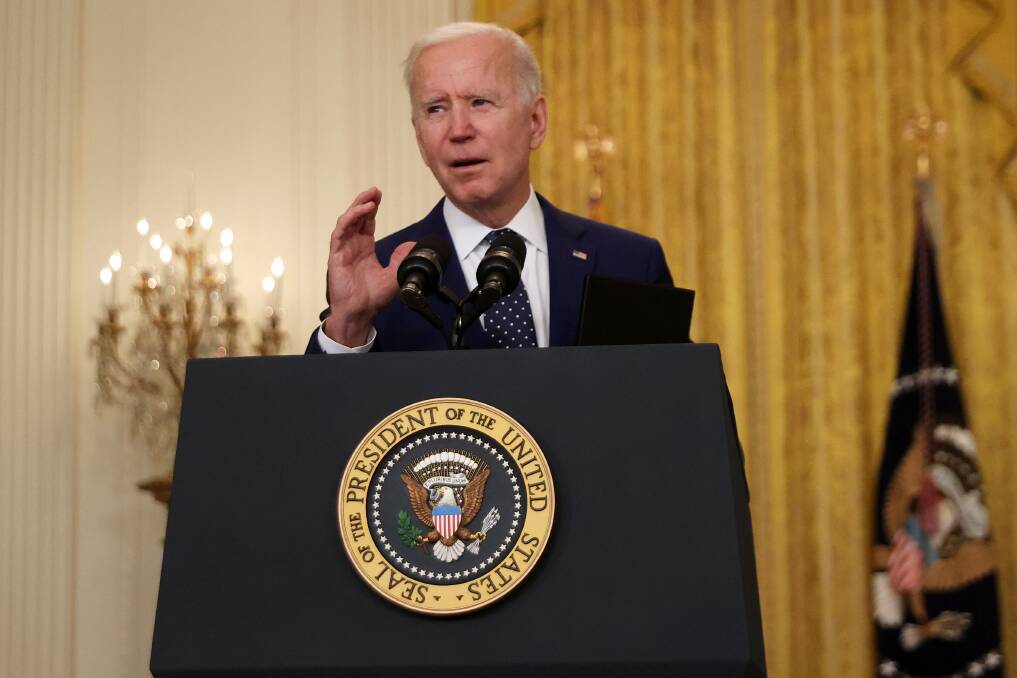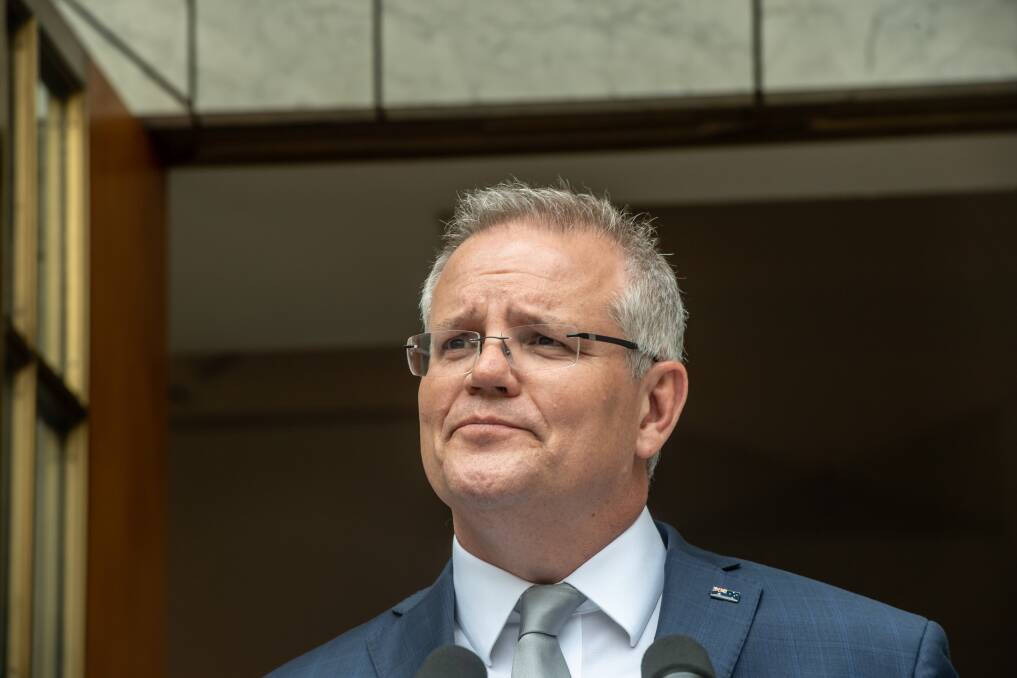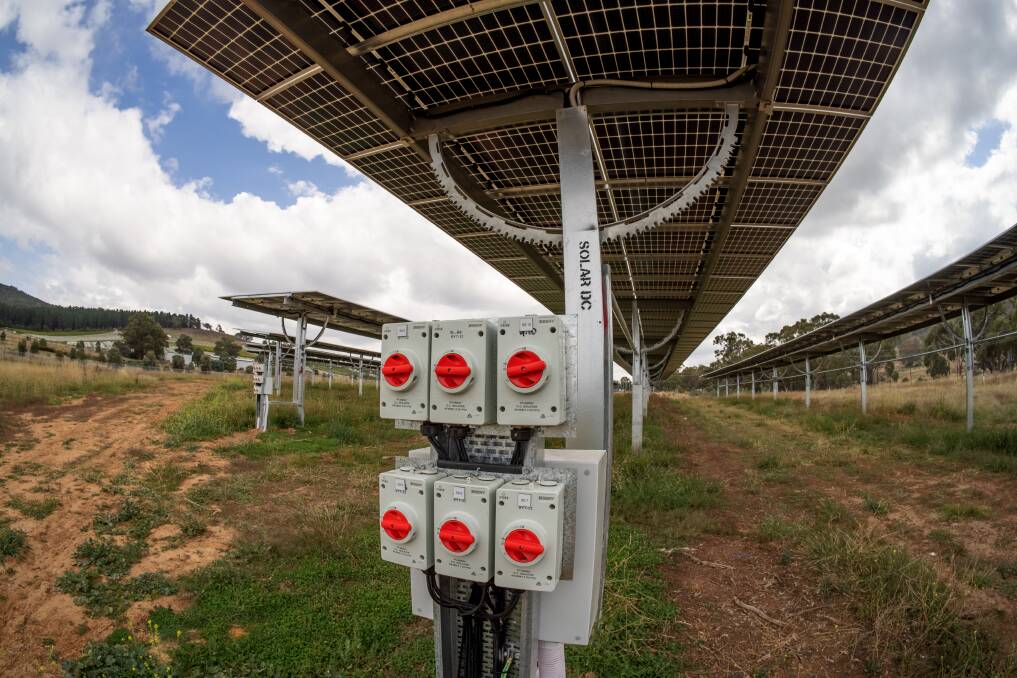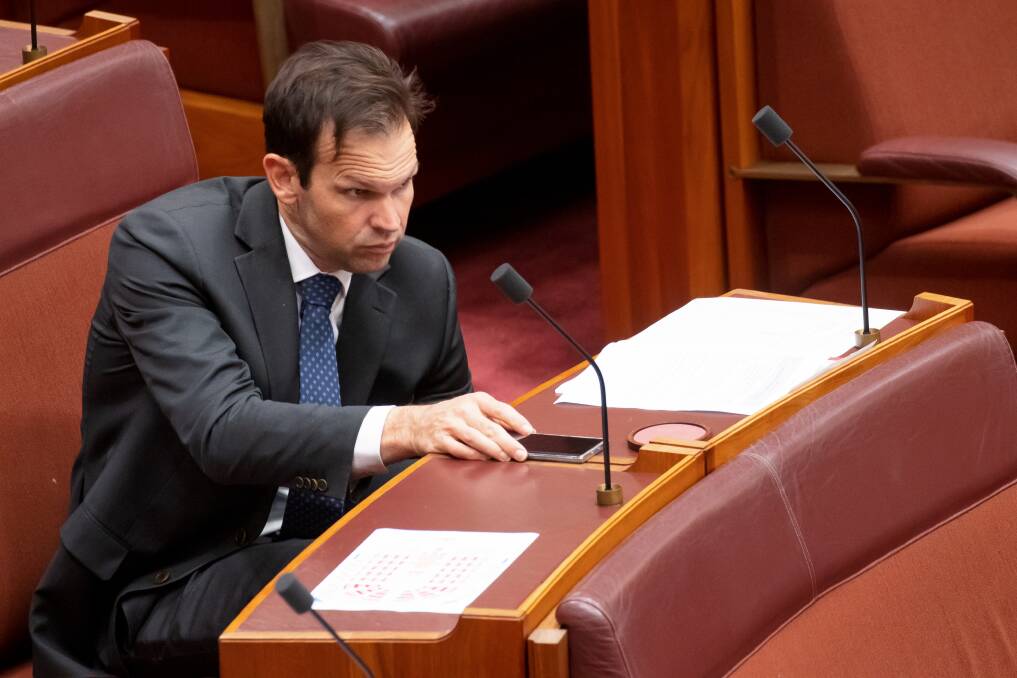
While many of us are tucked up in bed on Thursday and Friday night, world leaders will be meeting for what could mark a major turning point in the global fight against climate change.
Subscribe now for unlimited access.
$0/
(min cost $0)
or signup to continue reading
US President Joe Biden has convened a virtual summit of 40 leaders, including Australian Prime Minister Scott Morrison, in an attempt to drastically accelerate collective efforts to cut carbon emissions.
As Biden's chief climate negotiator John Kerry lamented earlier this week, the world is "simply not getting the job done".
The consequences of continuing at the current rate of pollution, Mr Kerry warned, could be "beyond catastrophic".
So what does Biden's summit mean for Australia? Could pressure from its biggest ally force Mr Morrison into adopting more ambitious climate action targets?
Talk fest or turning point?
In stark contrast to his predecessor Donald Trump, who infamously withdrew the US from the Paris Climate Agreement, Biden has put climate action at the top of his presidential priority list.
Two months after his inauguration, Biden announced plans to hold a leaders summit with the aim of "catalysing" efforts to keep within reach the goal of limiting global temperature rise to 1.5 degrees above pre-industrial levels.
The invitee list features some of the world's largest emitters, such as China, India and Russia, as well as smaller nations vulnerable to the worst consequences of a warming planet, such as Jamaica.
Biden will use the platform to set out an "ambitious" new 2030 climate target for the US, which some commentators have predicted could be a commitment to slash emissions by 50 per cent from 2005 levels.
He's encouraged other counties to come prepared with their own new targets. Canada, South Korea and Japan are among the nation's reportedly set to unveil new commitments at the two-day event, which will act as precursor to the Glasgow climate summit in November.
In what's been hailed as a major breakthrough, US and China - the world's two largest carbon emitters - have also now agreed to work together to tackle climate change.
As it stands, more than 100 nations have pledged to achieve carbon neutrality by 2050. Australia is not one of them.
What does it mean for Australia?

While some observers had expected Mr Morrison to make a firm 2050 commitment ahead of Biden's climate summit, the Prime Minister's address to a Business Council of Australia event on Monday night signalled the government was committed to its current course. Mr Morrison restated the government's position that it wanted to reach net zero "as quickly as possible, preferably by 2050".
He said he was "increasingly confident" that Australia could meet its goals, not through taxes but by harnessing the "pioneering entrepreneurialism and innovation of Australia's industrial workhorses, farmers and scientists".
The government remains committed to cutting emissions by 26-28 per cent of 2005 levels by 2030, although Energy Minister Angus Taylor remains confident Australia is on track to "meet and beat" that target.
Former government climate negotiator Richie Merzian said Australia's current level of ambition fell well short of what the Biden administration and other global leaders were pushing for.
"It would be a failure for Australia not to commit to revisit its 2030 target [at the conference]," said Mr Merzian, now the head of the climate and energy program at progressive think tank The Australia Institute.
"If there is one message that Kerry is trying to send, the UK are trying to send, is that we need more climate action now. That needs to be ambition in the form of an increased target."
Mr Merzian said while the international community would have sympathy for communities which would have to deal with the transition from fossil fuels, there would be little tolerance for government inaction.

"Australia's three-word slogans are met with eye rolling [internationally]," he said. "Australia has a reputation as not just a laggard on climate action but as a proponent of fossil fuels." Hervé Lemahieu, director of the power and diplomacy program at the Lowy Institute, said the reluctance to commit to strong climate action had the potential to "drive a wedge" between Australia and its allies.
Mr Lemahieu said Australia could suffer direct economic consequences from inaction, including in the form of export tariffs, and rob itself of the "first-mover advantages" which come from acting quickly to transition to renewables.
He said the government had a one to two-year window in which to change course, "problems start to mount". "My sense is that in order for that paradigm shift to take place in the Liberal Party, Morrison may like to wait until after the next election," he said.
"[If that happens] The signal to the rest of the world is we look quite weak. And he looks beholden to domestic politics."
'Our policies should be set by the votes of Australians'

Domestic politics are, of course, critical in understanding the federal government's position. Climate and energy policy has long been a source of deep tension and division within the Coalition party room. Suggestions of stronger action - such as setting a net zero target - are invariably met with swift and strident pushback from some quarters.
Nationals backbencher and former resources minister Matt Canavan said his government shouldn't allow pressure from the Biden administration to dictate its climate action policies.
READ MORE:
"Our policy should be set by the votes of Australians not the wishes of overseas governments," he told The Canberra Times.
"At the last election, Australians rejected more aggressive carbon emission reduction targets that were proposed by Bill Shorten and the Labor party."
Senator Canavan argued Australia shouldn't commit to net zero because China couldn't be trusted to meet its commitments. Beijing has promised carbon neutrality before 2060.
Labor has committed to reaching net zero by 2050, with interim targets to help guide the transition.
The opposition has yet to reveal what those targets would be, although the party's climate spokesman Chris Bowen said they would be announced "well before" the next federal election.
Our journalists work hard to provide local, up-to-date news to the community. This is how you can continue to access our trusted content:
- Bookmark canberratimes.com.au
- Download our app
- Make sure you are signed up for our breaking and regular headlines newsletters
- Follow us on Twitter
- Follow us on Instagram


